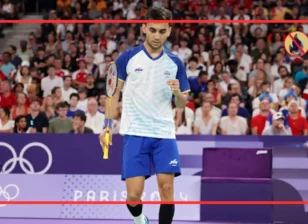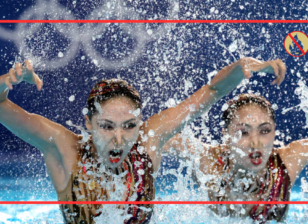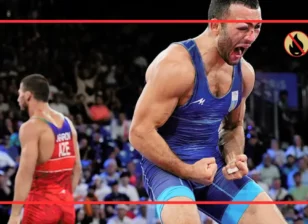Olympics History: From Ancient Greece to Modern Times
As a global sporting event, the Olympic Games are celebrated every four years, having profound significance in promoting athletic competition with more than 400 sports programs. This article explores the historical origins and evolution of the Olympics in the context of contemporary aspects and challenges being faced by these mega sporting events. Moreover, this is also an endeavor to explore its cultural and societal impacts through various time periods.
II. Ancient Greek Origins of the Olympic Games
A. Historical context and cultural importance of Ancient Greece
Ancient Greece has always been famous for its peculiar cradle of civilization and home to achievements pertaining to immense philosophical, artistic, and political spheres of life. The philosophy of physical prowess and competition is the central point of focus in the Greek way of life.
B. Founding of the ancient Olympic Games in Olympia
The first ancient Olympic Games were organized in 776 BCE in the place named Olympia Stadium, a holy sanctuary devoted to Zeus. In ancient Greece, the Olympic Games were held in the western part of the Peloponnese peninsula and not in individual city-states. It was considered a neutral place and an ideal location to host the games because of its sacred nature. These sporting events were an essential part of Greek civilization which fostered unity among the Greek community. Similarly, these Games were a pivotal part of religious festivals that happened in Greek.
C. Sports and events practiced in ancient Greek Olympics
In the past, the ancient Olympics were comprised of a variety of sports which included foot races, wrestling, chariot racing, pankration, long jump, javelin, and discus throwing. These activities and games depicted the athletic abilities of warriors of Greek civilization, and the strength of the human body and beauty were celebrated through such events.
D. Nudity in Ancient Greek Olympics
During the time of the ancient Olympics, nude male Olympians competed as a part of a ritual to pay tribute to the gods, and salutation of their physical aptitude. Through these practices, the purity and authenticity of the Games were emphasized.
III. The Evolution of the Olympic Games
A. The decline and end of the Ancient Olympic Games
The ancient Olympic Games survived almost 12 centuries, but they faced a gradual decline because of political turmoil and external invasions. It was around 393 CE, that Emperor Theodosius I imposed a ban on pagan festivals, which lead to the cessation of the ancient Olympics.
B. The revival of the Olympics in the modern era (Baron Pierre de Coubertin’s role)
The revival of the Olympics began in the late 19th century, particularly because of the efforts of Baron Pierre de Coubertin, also known as the father of modern Olympics games. By profession, he was a French historian & educator. He played a crucial role in the revival of the Olympic Games in Greek. He believed that sports have the power to promote understanding and peace among nations on the international level.
C. The first modern Olympic Games in Athens in 1896
It was due to the efforts of Pierre de Coubertin that the first modern Olympic Games were held in 1896, in Athens, Greece. Athletes from 14 nations participated in the Games which rekindled the Olympic flame which was in dormancy for centuries in the past.
D. Setting up of the International Olympic Committee (IOC)
It was due to the efforts to bring the ancient spirit of sports back into the modern era, that the International Olympic Committee (IOC) was established in 1894 for the purpose of overseeing and organizing the Olympic Games. From that time onwards the IOC became the governing body that is responsible for conducting and promoting the Olympic Games, and most importantly, safeguarding the essence of sports.
IV. Significant Olympic Events and Facts
A. Milestones and memorable moments in Olympic history
As the years passed by the Olympic Games have witnessed numerous memorable events like four gold medals won by Jesse Owen in 1936 at Berlin Games, Usain Bolt’s record-breaking sprints in 1980, and the Miracle on Ice during the Games in the same year.
B. Notable cities that have hosted the Olympic Games
Over the years, the Olympic Games have been hosted in various modern-day city-states of the world, and each host city contributes its unique flair to the event. Significant cities which have hosted these international Olympic games include Los Angeles, Paris, Tokyo, Rio de Janeiro, Sydney, and so on.
C. Olympic symbols and meanings (e.g., the Olympic rings)
The Olympic symbol comprises five rings connected with each other, depicting the union of five continents (Asia, Europe, the Americas, Africa, and Oceania) in friendly competition. On the other hand, the Olympic torch relay showcases the continuity of the Olympic Games from ancient to modern times.
V. Olympic Sports and Athletics
A. A list of traditional and modern Olympic sports
There is a diverse range of Games being played in the Olympics like swimming, gymnastics, soccer, basketball, fencing, and many more. In order to bring appeal to the broader audience, over the year various new sports are introduced and made part of the games.
B. The significance of track and field events in ancient and modern Olympics
Track and field events are a significant part of the Olympic program because they are rooted in the ancient Greek tradition. They are considered a symbol of human potential and endurance.
C. The evolution of marathon races and their historical roots
The origins of the marathon race have significant historical importance in the Olympic Games, as it originated from the legend of a Greek emissary who sprinted from the battlefield of the Marathon to Athens to deliver the update of victory. This event later on became the part of modern Olympics having a track of approximately 42 kilometers. This was the origin of what we now call the modern-day Olympics.
VI. Olympic Spirit and Ideals
A. The Olympic motto: “Citius, Altius, Fortius” (Faster, Higher, Stronger)
The motto of the Olympics has significant importance in both sports and life as it embodies the pursuit of excellence and constant striving for improvement in these spheres.
B. Olympic truce and the Games’ role in promoting peace
In the past, during the ancient Olympic time there was an Olympic truce between nations that encouraged and allowed for safe travel and participation during the Games. In the same manner, the modern Olympic games are also seen as a source of fostering peaceful coexistence and diplomatic dialogue between nations worldwide.
C. Cultural exchange and camaraderie among nations
It is an observed fact that the Olympics serve as a platform for nations to come together in the spirit of unity and friendship as they serve as a medium for cultural exchange, encouraging athletes and spectators from diverse backgrounds to come together and enjoy the sports.
VII. Impact of the Olympics on Society and Culture
A. The Olympics as a platform for promoting unity and diversity
As mentioned above, the Olympics encourage people from diverse backgrounds to come together and enjoy the games on a single platform. The Games unite people from all corners of the world, breaking the linguistic, national, and cultural barriers, and letting them celebrate the diversity of humanity.
B. The economic and social impact of hosting the Olympic Games
Undoubtedly, hosting the Olympics lead to significant economic development coupled with infrastructure improvements which fosters increased tourism in the country. However, hosting these games are never without challenges such as enduring the financial burden and displacement of local communities.
C. Gender equality and the inclusion of women in sports
The Olympic games have played a vital role in promoting and professing gender equality in the sphere of sports. These games make sure that women are provided more opportunities to participate and excel on a global level.
VIII. Modern-Day Olympics
A. Overview of the modern Olympic Games frequency and locations
In modern times, alternating between Summer and Winter Games, the Olympic Games are held every four years. The hosting cities for these sports are chosen through a systematic process of competitive bidding.
B. The introduction of new sports and disciplines in recent Olympics
In order to keep the Games relevant and appealing to the younger generation, the IOC continuously strives to add new sports to the Olympic program through systematic evaluations of emerging gaming trends. Following are some of the major games that have been added throughout years in Olympics:
- Karate
- Surfing
- Skateboarding
- Aquatics
- Ice Skating
- Demonstration sports
C. The impact of technology on the Olympics and its viewership
As technology has impacted every sphere of life, it did not miss the Olympic Games. The technological advancements have immensely transformed the way people used to experience the Olympics, as it has enhanced global viewership and engagement through massive broadcasting and data analysis.
IX. Controversies and Challenges
A. Doping and performance-enhancing drugs in Olympic history
Despite the efforts of the IOC to safeguard the essence of sports and the spirit of fair play in the Olympics, the use of banned substances to increase the athletics prowess has been a recurring issue in the Olympics. Such practices lead to the disqualification of athletes and tarnish the spirit of fair competition. Here are some of the examples of such unfair practices:
- Ben Johnson (1988): Ben Johnson, a sprinter from Canada, tested positive for a steroid after winning the 100-meter dash at the Olympics. The gold medal was taken away from him and given to Carl Lewis.
- Marion Jones (2000): Jones won five medals at the Sydney Games, but later admitted to using performance-enhancing drugs. She was banned for eight months and had her medals taken away.
- Lance Armstrong (2000): The bronze medal that American cyclist Lance Armstrong won at the 2000 Olympics was later stripped of him after he admitted to using performance-enhancing drugs.
- Ross Rebagliati (1998): A Canadian snowboarder, won a gold medal in giant slalom at the Nagano Games, but had it taken away after testing positive for using marijuana. However, cannabis was not on the IOC’s list of banned substances at the time of the ruling.
- Russian athletes (2014): Russia was banned from the Winter Olympics in 2018 for operating a state-sponsored drug scheme. However, Russian athletes, later on, competed in the Beijing Olympics in 2022.
B. Political boycotts and the Olympics
Throughout the years, the Olympics have faced boycotts by several countries for political reasons. Undoubtedly, such practices have adverse impacts on athletes and undermine the true spirit of the Games which fundamentally encompasses peace and friendship. To elucidate, here are a few examples of the major controversial boycotts throughout the history of the Olympics.
- Boycott of Melbourne Olympics in 1956 for Taiwan and Hungarian Solidarity.
- Boycott of the Moscow Olympics in 1980 over the Soviet Union’s Invasion.
- Boycott of the Los Angeles Olympics in 1984 as a response to Eastern Bloc to discourage the Soviet Union’s Invasion
- Boycott of Montreal Olympics in 1976 when African Nations United against Apartheid.
- Boycott of Berlin Olympics in 1936 over the massive protests in Spain.
C. The environmental impact of hosting large-scale Olympic events
It has been observed by climate change specialists that hosting the Olympic games can have several environmental repercussions. These adverse consequences range from increased carbon emissions to the construction of large infrastructures which ultimately damage the default environmental ecosystem.
- Deforestation and Habitat Destruction
- Air and Water Pollution
- Waste Generation (Water Usage and Resource Depletion)
- Massive Energy Consumption
- Land Contamination
- Displacement of Communities
X. Conclusion
There is no denying the fact that the Olympic Games have come a long way from originating in ancient Greek to becoming a global symbol of peace, unity, and excellence in competition. Historically, the Olympics have inspired so many people around the world by showing the potential of sports to foster and shape harmony among global communities. Looking into the future with a pragmatic approach tells us that the Olympic movement continues to evolve, carrying the legacy of many centuries-old traditions, and hoping for a better world united through sports.





